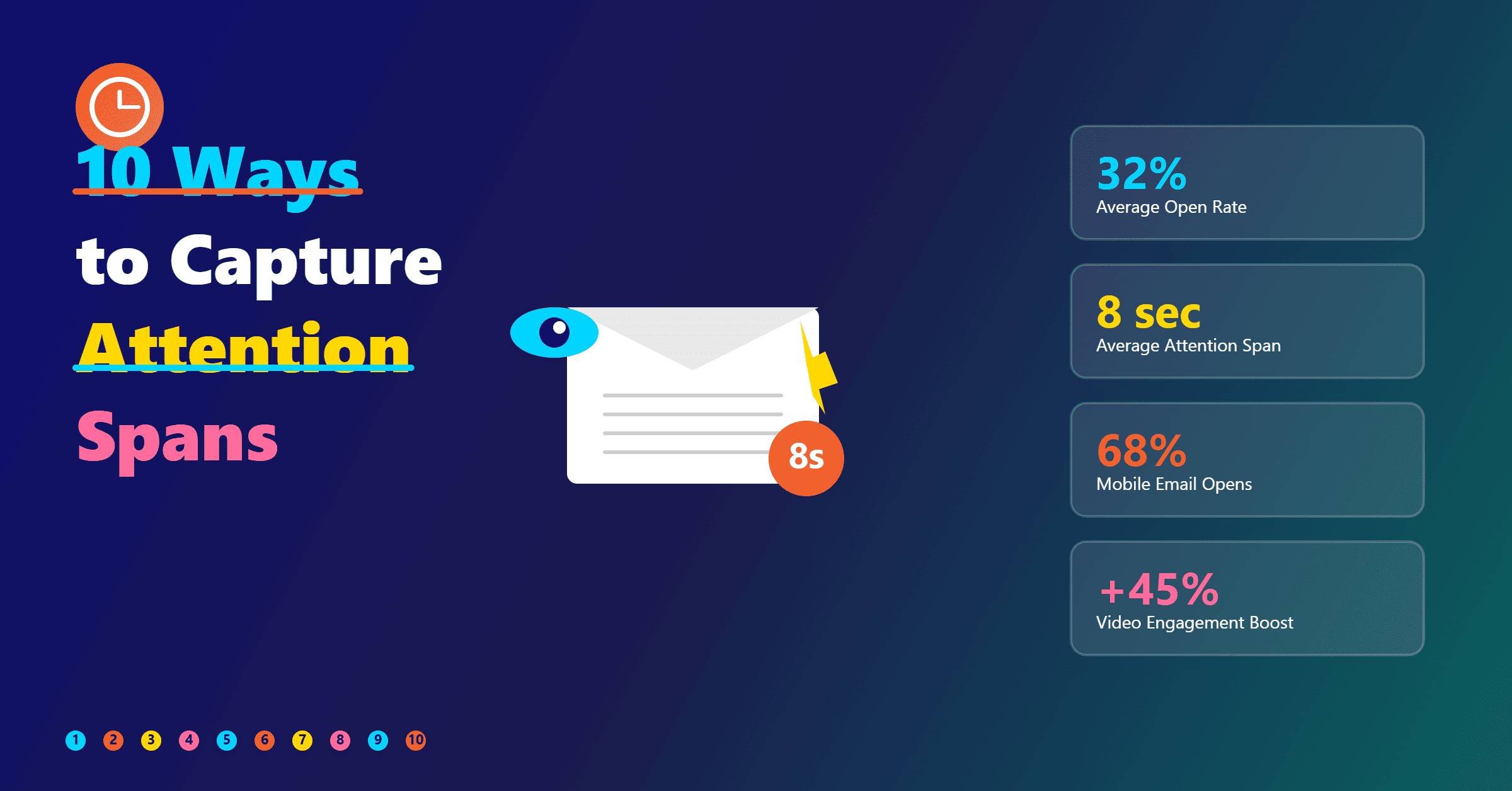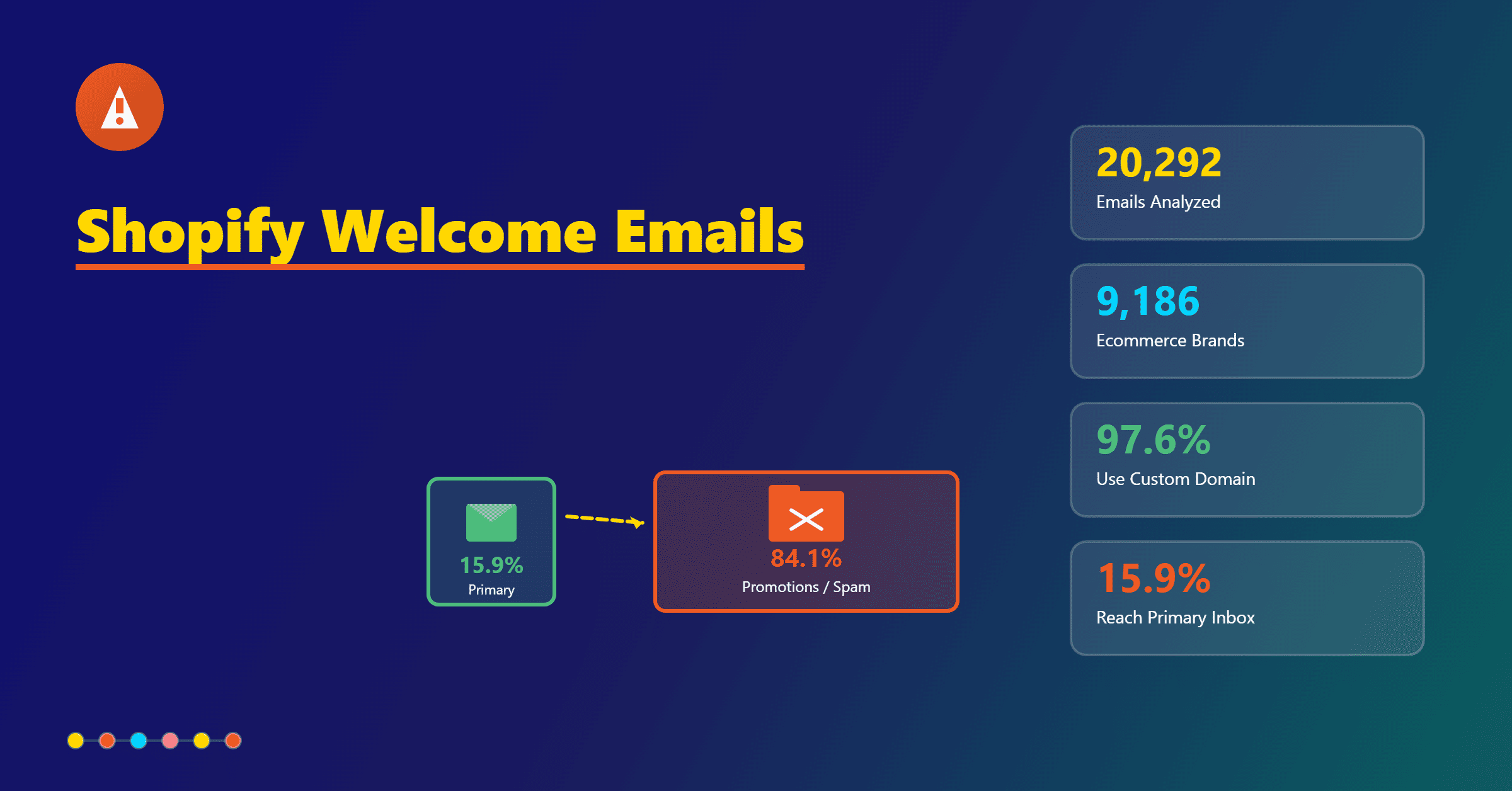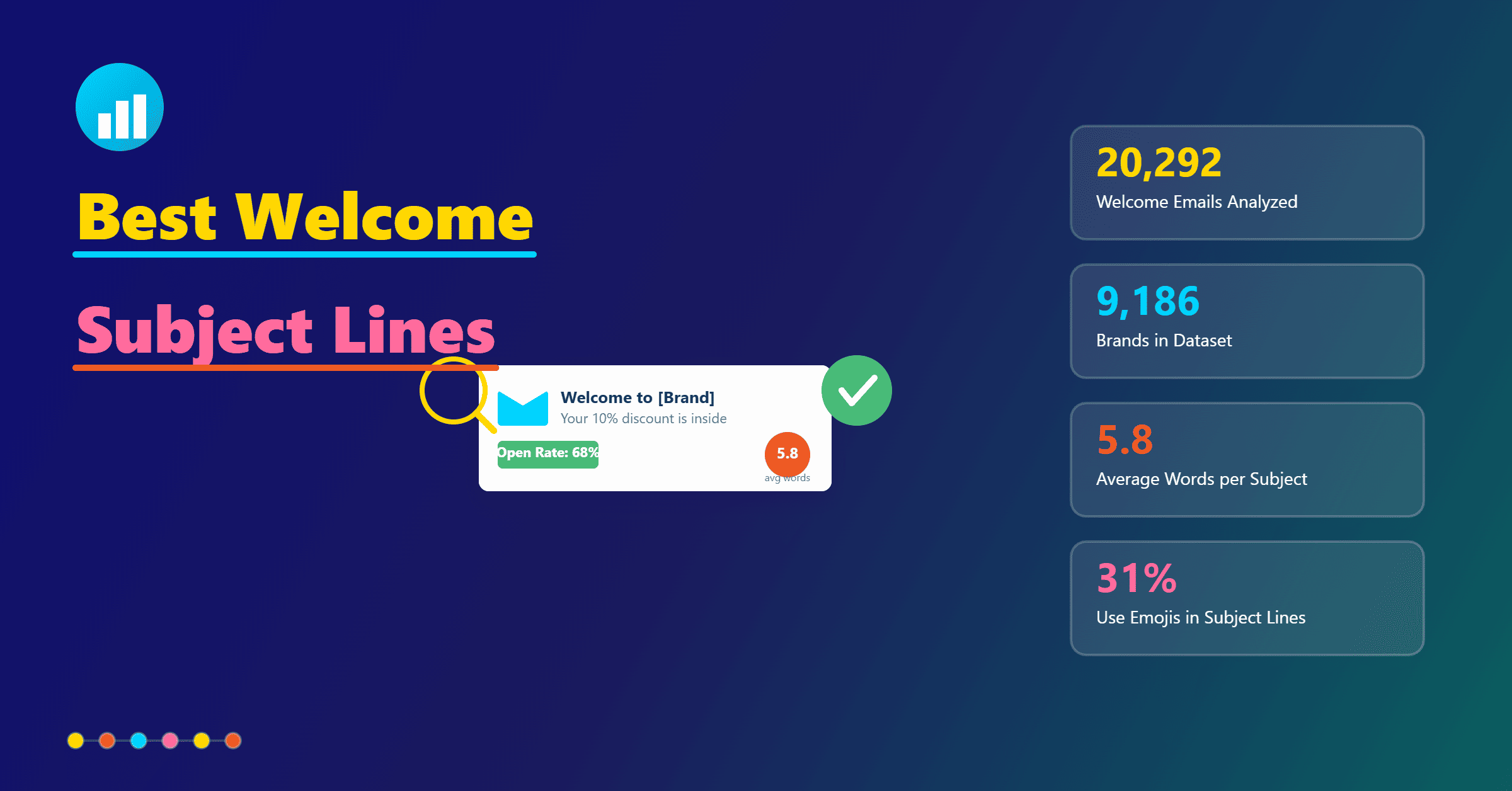If your attention span is shorter than mine (which it isn’t, but I’m prone to exaggeration), this post is for you.
I know it’s fun to write long-ass emails that no one wants to read. I can admit that my attention span gets in the way sometimes as well.
But what if there was a better way? What if your emails were even more engaging and, thus, better received?
This blog will show you how to improve the effectiveness of your emails and make people want to read them.
What Do Short Attention Spans Mean To Your Email Marketing?
When you’re trying to get people’s attention, it’s essential to know how short their attention spans are.
The average attention span was eight seconds. Nowadays, there’s no way you can hold someone’s interest for much longer than that.
If your email marketing doesn’t grab them within the first few seconds, they’ll likely lose interest and move on to something else. And if the subject line or first sentence doesn’t grab them, they’ll probably delete the email without opening it up.
It’s not just about getting people’s attention — it’s also about what you do once you’ve got it. You want to keep things moving so that readers don’t lose interest before they even get to the body of your message.
10 Ways To Improve Your Email Marketing To Capture Attention Span
Email marketing is one of the most effective ways to market any business. It’s also a way to promote your brand, engage your customers and grow your business.
But if you want your email marketing efforts to be practical, you need to make sure they are engaging enough to capture your audience’s attention. Here are seven tips that will help you do just that:
1. Make Sure It’s Relevant
People are bombarded with emails every day, and it can be difficult for them to know what is essential and what isn’t.
That’s why every one of your emails must be relevant to them. It means sending emails about products or services that you know they have been looking at or things they have mentioned in previous conversations with you or other team members at the company.
It also means sending information about things happening in their industry or their local area so they don’t feel like they are being spammed with irrelevant information every time they open their inbox.
2. Write Subject Lines That Stand Out
The first thing people see when they open their inbox is the subject line. It should grab their attention and make them want to open the email. But how do you write an attention-grabbing subject line? To start with, here are some tips:
- Make sure it matches what people expect from your brand or business; for example, if you sell children’s clothes, don’t send a message about retirement planning.
- Use numbers or symbols in the subject line (for example, “5 ways to improve your email marketing!”)
- Be creative – use puns or jokes if possible (but don’t overdo it)
3. Leverage Video Content
A great way to capture your audience’s attention is by using video content in your emails.
Video is one of the most engaging types of content online, so it’s no wonder it’s so popular on social media sites like Twitter and Facebook.
But did you know that it can be just as effective in email? You might think that most people don’t have time for a video in their inboxes, but studies show that people who receive emails with videos open them more often than those without videos — so why not give it a try?
4. Make It Mobile Friendly
Mobile-friendly is a must these days.
These days, it’s not enough to just about having a responsive design — now, many people are only opening emails on their phones or tablets. It would be best to make it easy for your subscribers to read and interact on their phones and tablets.
Picsart font generator is a great tool for helping you create a font that is compatible with mobile devices and will have a great look and feel. Please don’t use images that are too large or complicated, as they will be blurry or pixelated on mobile devices.
Also, make sure that you don’t include any links in your emails that take people away from your website — if you do, there should be an easy way for people to get back again.
If you want your emails to get opened, you need to make sure they’re mobile-friendly. That means using a clean design and text that’s easy to read.

5. Use The Return Button Often And Write In Short Sentences
It’s not just about the subject line but also the body of your email.
The return button is one of the most powerful tools in your arsenal for keeping readers engaged. Use it often and make it count.
When writing your emails, don’t be afraid to make them short and sweet. No one wants to read long blocks of text or paragraphs that take up an entire screen.
Short sentences will keep readers engaged because they won’t have to scroll down as far to find out what comes next. You can also use bullet points and bolded text to break up long paragraphs into smaller chunks that are easier to digest.
6. Use Copy That Conveys A Sense Of Urgency
One of the most effective ways to grab your readers’ attention is to use copy that conveys a sense of urgency.
This type of copy will make it clear to readers that they should act now, or they’ll miss out on something they want or need.
For example, if you’re offering a limited-time discount on products, let your customers know how long the offer will last and what will happen if they don’t buy before then.
7. Ensure Your Email Is Easy To Read
Designing an email layout with a lot of text and graphics can confuse readers who aren’t accustomed to receiving them regularly. So please keep it simple and clear enough for anyone to understand at first glance.
Use colors that are easy on the eyes, such as blues or greens, and avoid flashy images or fonts that might reduce readability by making text hard to see or understand quickly.
If you need more space than just plain text offers — say, if you want to include links or images — consider using an HTML format instead of plain text.
8. Make It Clear What You Want Readers To Do Next
The best way to get people to do what you want them to do is by making it very easy to understand what they need to do next.
That way, there’s no confusion about what action needs to take for them to get what they want from your email campaign.
It could be downloading an asset or signing up for your newsletter. Ensure your subscribers know what they should do when they open your email message.
9. Format Your Email Copy
A recent study found that people read emails on average for a mere five seconds before deciding whether or not to delete them from their inboxes. That’s not much time at all. So how do you grab attention in such a short period?
One way is by formatting your email copy so that it’s easy to digest quickly, with plenty of white space and short paragraphs (no more than three sentences).
Make sure your font is large enough not to get cut off when viewed on smaller screens. Also, make sure there isn’t too much text in each paragraph — this makes it hard for readers to follow along and makes them feel overwhelmed by information overload. Here are some tips for writing better email copy:
- Spell out numbers one through nine. Use numerals for 10 and above.
- When appropriate, use contractions (can’t, don’t, won’t, etc.).
- Use bullets to make lists easy to skim.
- Keep paragraphs short — four or five sentences at most.
- Use boldface type sparingly: once per paragraph is plenty.
10. Choose The Right Email Marketing Software
Many tools are available that make it easy to create and send emails.
If you’re not sure which one is right for you, use our curation of email marketing software to help you choose the best software for your business.
Let’s Wrap Up Things!
The one issue that would need to be addressed is the attention span.
The email has already been optimized for the attention span of a goldfish, and for many email marketers, it’s about time to make it more convenient for people to interact with their content.
Branded content, however, which doesn’t necessarily require readership from the recipient, is still a viable option.
It’s helpful to consider these ten tips to write the message you are trying to convey to your consumers and how exactly they will receive and react to that message.







